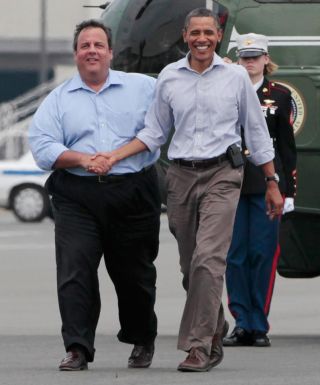Education
On Learning Resilience and Equanimity
Learning from Adversity to Achieve Success
Posted October 30, 2012

I wanted to take a moment to wish all of you on the Eastern seaboard a safe and dry passage through Hurricane Sandy.
This isn't a post about innovation, but instead, about equanimity and courage. Equanimity endows compassion with courage, so that we have the strength to face the pain in life and to face inevitable cruelty in the world. Equanimity supports the development of wisdom because when the mind doesn't shake, we can stay with the truth of things long enough to have a deep insight. And equanimity provides the strength to enable and empower loving-kindness – which requires understanding and patience.
There's a Buddhist poem from the Therigatha:
If your mind becomes firm like a rock
and no longer shakes
In a world where everything is shaking
Your mind will be your greatest friend
and suffering will not come your way.
But more importantly, at a deeper level, equanimity describes a complete openness to experience, without being lost in reactions of love and hate and ego and rumination. Consider this example: According to the World Bank, a similar flood in Thailand caused over $45 billion in damage, but still the people of Thailand managed to make the best of the terrible thing and demonstrate tremendous resilience and equanimity, as evidenced by these smiles:
The key to achieving such remarkable equanimity is to see the beauty of the present moment. As Thich Nhat Hanh says, “To live in the present moment is a miracle. The miracle is not to walk on water. The miracle is to walk in the present moment, to appreciate the peace and beauty that are available now.”
So let us – as a people – learn from the "Land of Smiles" how show the same kind of resilience and fortitude and positivity. Let us, as Americans, learn how to come back together as one people - guided by compassion and cooperation – to work together to bring America back into the "fixing things" business instead of the obstructionist "blame the other guy and win at any cost" game.
I said that this post wasn't about innovation, but actually, it is, or can be. Equanimity, compassion and cooperation are the hallmarks of not only a truly great innovator, but a great leader as well, who will someday not only build a business, but could possibly help to build a better world.

When I saw the recent photograph of Governor Chris Christie moving past the politics to get the job done with President Obama – saving lives and helping people survive this storm – it filled me with joy and the realization that America usually will bring out that special "can do" spirit, but usually only in the face of adversity.
Times like these can divide us or bring us back together again. However, through one crisis after another, certain lawmakers in Washington have demonstrated a remarkable inability to work together. We need to remember that innovation isn't just coming up with ideas, it's about making it happen. My formula for innovation:
INNOVATION = IDEATION x EXECUTION
Ideation is the art and science of coming up with great and implementable ideas. Execution means learning how to work together, to collaborate effectively, to bring those ideas to live. So America is only as innovative as the multiplicative product of its ability to come up with great ideas and its ability to work together to execute and deliver. Hence, innovation in America isn't hampered by its brilliance, it is inhibited by its essential political polarization.
Elected officials should serve as role models for positive behaviors, not grandstanding media hounds and repressed sexual deviants. They should work together to enable progress, based on scientific fact and historical track records, not on 17th century religion and polemic beliefs. Let us use this terrible adversity, the worst storm to hit the Eastern seaboard since 1888, as an opportunity to cleanse the country of its polarization, an opportunity to achieve greater equanimity and compassion, and an opportunity to show the world the best of what we can be as a people and a country.


